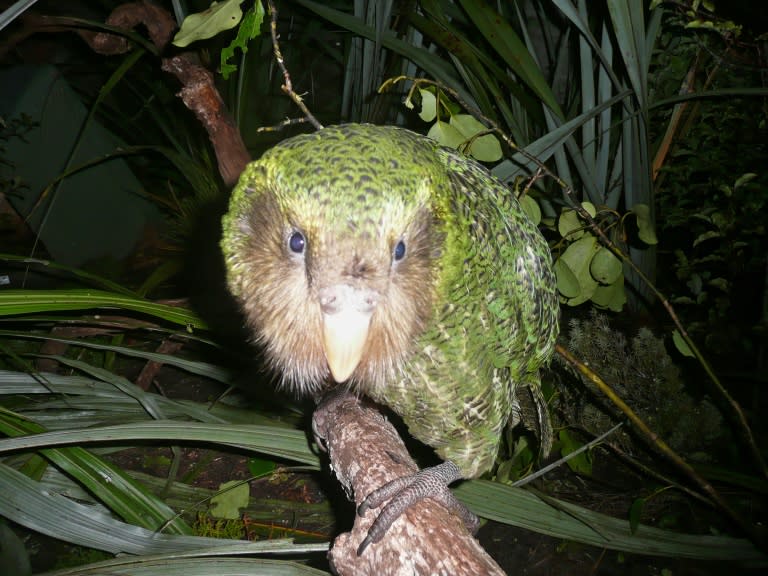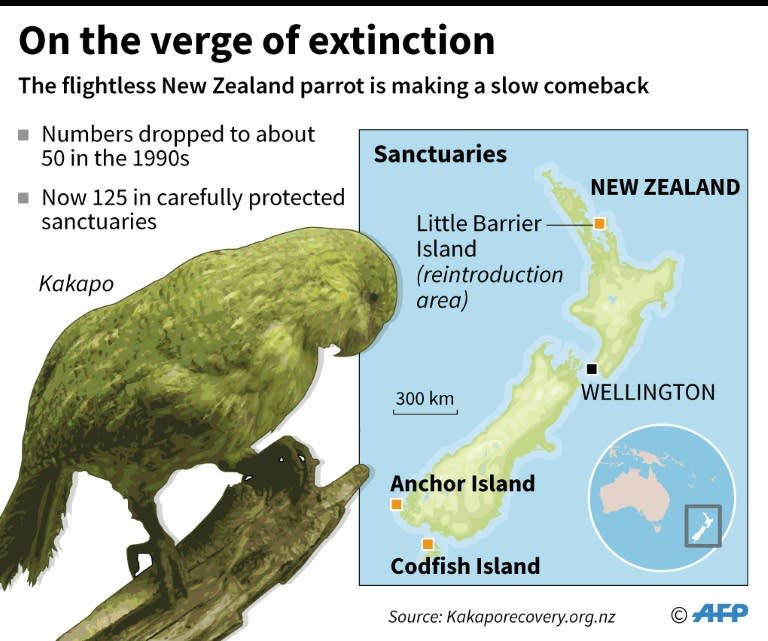Rare New Zealand parrot not dead, just pining for fiords
The world's rarest parrot has enjoyed a bumper breeding season in New Zealand, raising hopes it can eventually be reintroduced to its native Fiordland, conservationists said Friday. The kakapo, a plump green parrot that nests on the ground, was once thought extinct but its numbers have slowly increased to 125 birds thanks to an intensive conservation programme dating back decades. The hard work paid off spectacularly this year as 36 chicks hatched and survived during breeding season, well up on the previous record of 22 in 2009. "It's the most successful breeding season since we started in 1995 and I think that's cause for international celebration," Conservation Minister Maggie Barry told AFP. "It's very rare that you have the opportunity to bring back a precious taonga (treasure) species from teetering on the very edge of extinction, that's what we've managed to do." The kakapo was once one of New Zealand's most common birds, with an early European explorer reporting they could be shaken from bushes like apples. But the flightless and slow moving species proved easy pickings for introduced pests such as rats, stoats and cats. Male kakapo -- the name means "night parrot" in Maori -- made themselves even more vulnerable by emitting a loud booming call, telling predators exactly where they were. They were thought to be extinct in the 1970s until a few remnant populations were found in the wild, although Barry said numbers had dwindled to 45 by 1995. The conservation programme involves breeding kakapo on three island sanctuaries that have been cleared of pests. The chicks are closely monitored and weighed nightly, with any that appear to be ailing sent to a facility in Invercargill where they can receive 24-hour care. "Unfortunately one died yesterday (leaving 36 survivors), illustrating the fragility of the population," Barry said. "Frankly, if we didn't intervene in the way that we do the kakapo would be extinct." Despite this year's success, Barry said the kakapo still had a long way to go before it was out of danger. "In terms of numbers, I think we would be looking in the thousands before we took it off the list of endangered species," she said. She said the long-term plan was to re-introduce the parrot to its original habitat, including Fiordland in the South Island. "The challenge for us is to breed them to numbers in the wild, so they can sustain their own populations on offshore islands where there are not predators. "But also to take them back to areas they came from, which is remote Fiordland and Stewart Island." Many who have worked with the kakapo, including British comedian Stephen Fry on a 2009 documentary, have described them as full of personality. Barry said she was also a fan. "I think the kakapo are our most endearing bird, they're real characters," she said.




